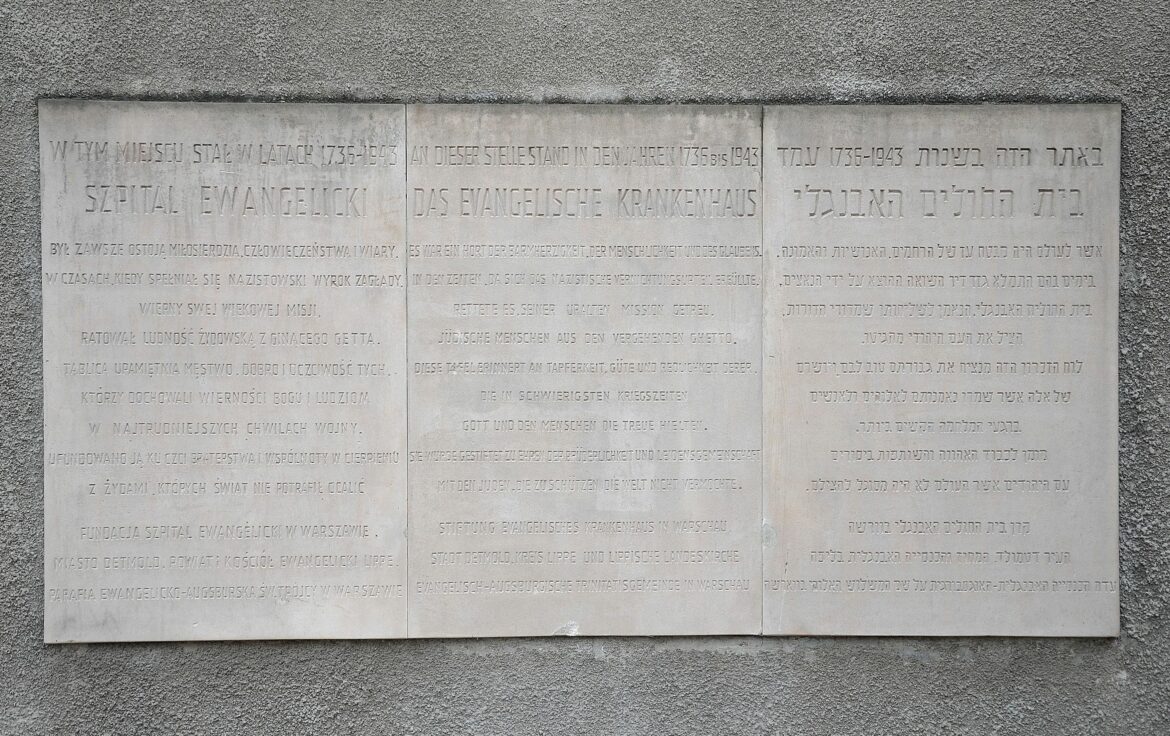The beginnings of the Evangelical Hospital, run by the Evangelical-Augsburg parish of St. The Trinity date back to the 1830s. For over two centuries, the hospital was located on the square between Karmelicka and Mylna Streets, initially (until the end of the 18th century) near a cemetery.
The period of the Partitions turned out to be the time of the hospital’s development. The facility was expanded and talented specialists were acquired for cooperation. One of the most famous Polish doctors, Tytus Chałubiński (1820-1889), internationally recognized for his successes in fighting cholera during the epidemic that struck Warsaw in the mid-nineteenth century, began his career here, and then worked for many years.
The deaconesses, who looked after the sick, were also professionally educated (initially abroad). This was a novelty at the time, because before the first “modern” nurse, the Englishwoman Florence Nightingale (1820-1910), nursing was not a respected profession and nurses were generally not properly trained.
In the first years of the Second Polish Republic, during the Polish-Bolshevik war, the Evangelical Hospital operated as a military hospital.
During World War II, a Jewish ghetto was established in the immediate vicinity. As one of the nurses recalled in the 1980s:
“Jews were coming to us for anything they needed“.
Despite the ruthlessness of the German occupier, who introduced the death penalty in Poland for helping the Jewish population in any form, the hospital staff tried hard to look after the Jews. Particularly zealously they fought for the lives of the youngest providing them with not only medical aid.
“We sent unaccompanied children after hospital treatment to families that offered them shelter”.
When in the spring of 1943 the Germans finally annihilated the Warsaw ghetto, the hospital was closed. The work was organized in a much more modest building at Królewska Street. During the Warsaw Uprising, the facility moved to Szpitalna and Mokotowska Streets, operating as an insurgent hospital.
The facility ceased its activity with the fall of the Warsaw Uprising and attempts to reactivate it after World War II failed.





